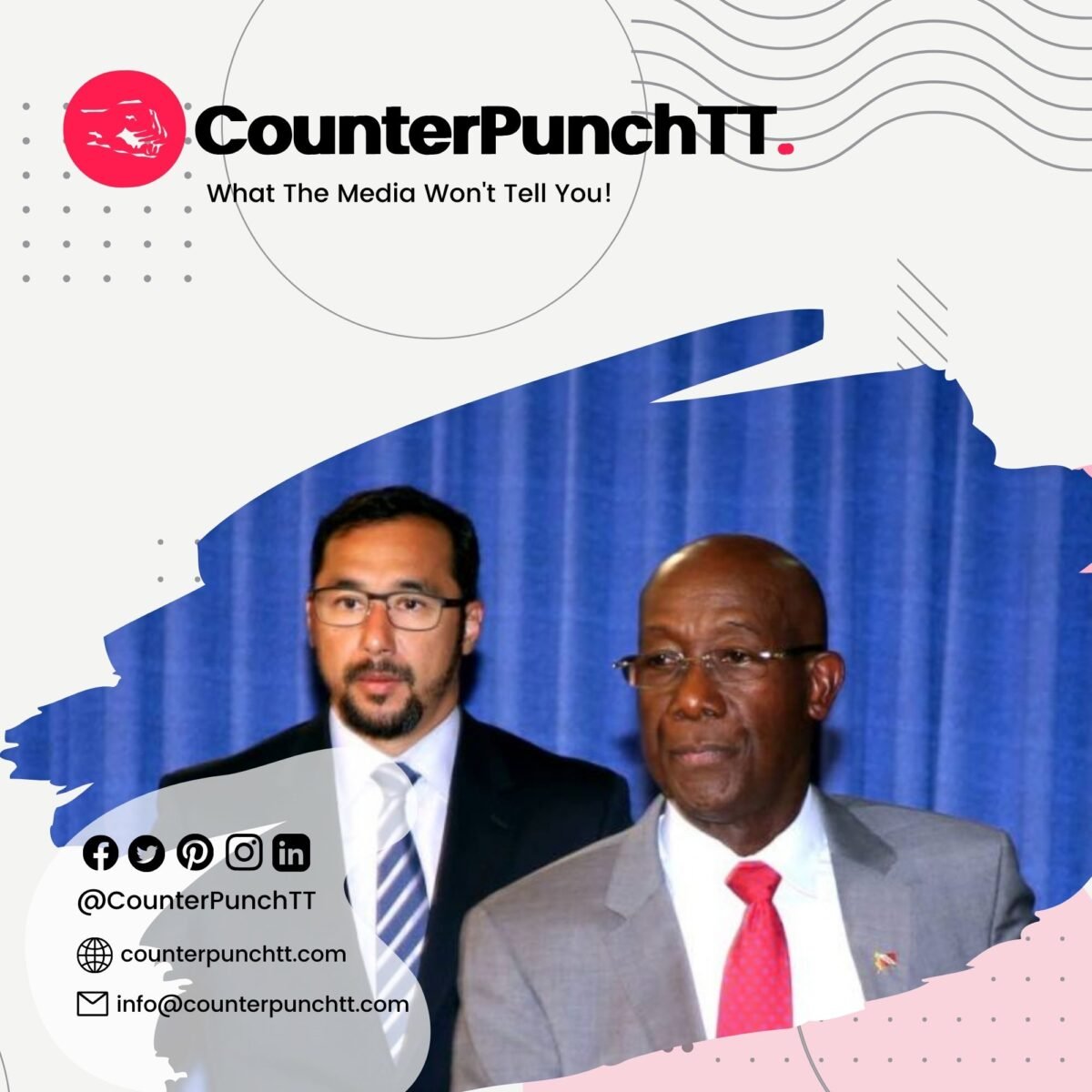A FULL-BLOWN conflict has now broken out in the People’s National Movement (PNM) over Prime Minister Dr. Keith Rowley’s dogged determination to secure Stuart Young as the next party boss.
Two major competing teams are in a behind-the-scenes bitter campaign for leadership of what one insider termed “the soul of Eric Williams’ great party.”
Rowley’s shock decision to scrap a scheduled convention and election is likely to be followed by an earlier-than-expected general election unless intra-party peace could be negotiated.
As political leader, Rowley, now 75, is seeking to use the next party event to foist Young as his eventual successor.
His change agenda is supported by Camille Robinson-Regis, head of the Women’s Arm, Deputy Leader Rohan Sinanan, Fitzgerald Hinds, and others, including two leading Islamic supporters, one a government minister and the other a general election candidate.
As a result of Sinanan’s influence, Rowley’s plan is backed by several Central Trinidad party figures, including a nominee for a marginal general election constituency.
But there is organised opposition from a well-placed party executive official who is influential among East-West Corridor constituency groups, especially youths.
The executive member has the support of certain government ministers and senators, including a fast-rising and high-profile operative and an aspirant candidate for an urban constituency.
There is growing chaos over alleged attempts to manipulate the party election and undermine the popular vote.
Notably, former Vice Chairman Robert Le Hunte has repeated his assertion that there should be no attempt to stifle the will of the people.
“The voice of the people is the voice of God,” Le Hunte was quoted as saying.
The anti-Young camp is insisting that Rowley’s plan would shift the PNM from a grassroots urban party into a tool of the business upper class.
There is disaffection among constituency officials over the deterioration in the quality of life of the working class during the nine years of Rowley’s national leadership.
One activist said: “We have taken note that on the day the Finance Minister said in his budget address that he could not do better for the small man, a business enterprise announced $1.3 billion in annual revenue.”
He was referring to fast food retailer Prestige Holdings, headed by Christian Mouttet.
The party activist pointed to increased profits and growing business empires of “a select few” while “many people are living and paying taxes on 2013 wages.”
He said: “We have a clear ideological difference with Stuart and other big-shots, and it is because of what we are witnessing.
“We are in the midst of a civil war, but we are not playing out our issues on the public streets.”
He noted that “Young and certain others have recused themselves from a lot of Cabinet meetings.
“That is because they have significant business interests in those decisions involving millions of dollars.”
The constituency official asked: “How many small people have risen over these nine years?”
There are concerns at at the General Council and various levels of the PNM at the likelihood of Young becoming the next leader and of the possible use of subterfuge to have him elected.
Le Hunte expressed a popular party view that any attempt to stifle the voice of the people “will be very much unlike the PNM.”
Professor Selwyn Cudjoe warned last year that “without the necessary guardrails, some party members can become more equal than others.”
Cudjoe said that the Rowley Administration has left “the needs” of Afro-T&T nationals “unattended or neglected.”
Dr. Amery Browne and Pennelope Beckles-Robinson have leadership ambitions, with Foster Cummings considered a primary political broker.
There is speculation that if the issue is not resolved, Rowley would take the country to the polls, after which he would deal with the party issue.
The alleged attempt to manoeuvre the party vote is an ironic turn of events for Rowley, who faced electoral irregularities when he challenged Patrick Manning for leadership in 1996.
The PNM then had a delegate system of voting, and Manning had several party groups hurriedly set up.
Rowley changed the system to one person-one vote when he became leader in 2010.




